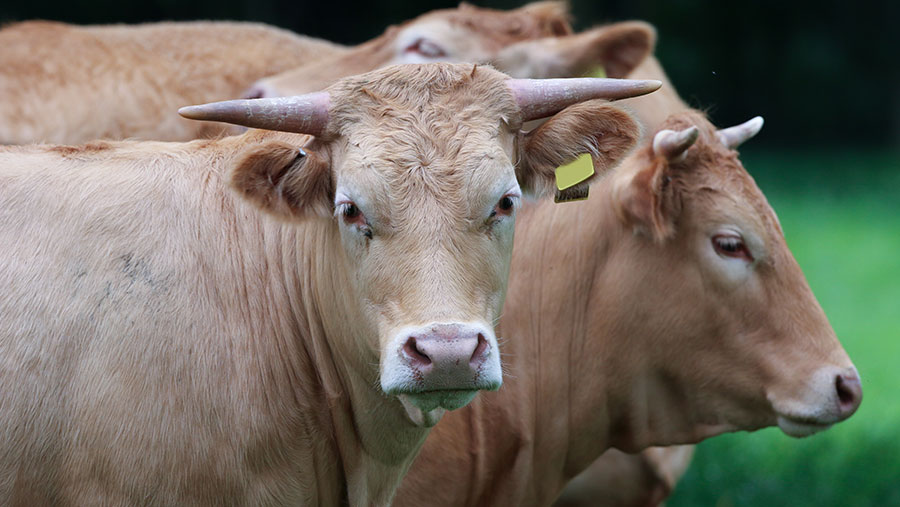Farm leaders voice concern over ‘no-deal’ Brexit
 © Tim Scrivener
© Tim Scrivener Farm leaders have voiced growing concern over the prospect of a no-deal Brexit and the effect it will have on UK agriculture.
Northern Ireland’s beef, sheep and hill farming sectors have joined with red meat processors to warn that leaving with no deal would be a disastrous outcome for the industry.
See also: NFU leader warns of no-deal ‘agricultural Armageddon’
The Ulster Farmers Union (UFU) and Northern Ireland Meat Exporters Association (NIimea) said they had deep concerns about the effect of the UK leaving the EU without a trade deal in place.
UFU beef and lamb chairman Sam Chesney said: “We see this as a very risky outcome.”
‘Unfair competition’
Failure to secure a deal would see up to 60% tariffs on red meat exports and unfair competition in the UK market from lower-standard meat imported from outside Europe, said Mr Chesney.
UFU hill farming chairman John Kennedy warned that a cliff-edge scenario would mean the effective closure of export markets.
Mr Kennedy warned: “There must also be a settlement that protects the UK from being flooded with cheap food of dubious quality.”
Nimea executive director Conall Donnelly said uncertainty was already a growing concern for meat processors, as well as for livestock producers.
He added: “It is hard to see any outcome that could be worse than no deal.”
Trade barriers
Lack of clarity was already proving to be a trade barrier with the potential to make suppliers and customers hedge against the risk of a hard Brexit, said Mr Donnelly.
The Tenant Farmers Association (TFA) has also urged the government to come forward with clear advice about the implications of no deal on the UK’s withdrawal from the EU.
TFA chief executive George Dunn said greater clarity was needed about what it would mean for farm businesses and the wider food and drink sector.
Mr Dunn said the TFA had been supportive of the government’s attempts to agree a transitional arrangement with the EU prior to the implementation of a frictionless trading agreement.
This would at the same time provide an opportunity to build new, positive trading relationships with the rest of the world, said Mr Dunn.
But he added: “Ever since the publication of the so-called ‘Chequers Agreement’, the likelihood of achieving this has become increasingly remote.”
Details needed
The TFA welcomed the government’s commitment to issue further information – but said it was essential that any advice and information was both detailed and comprehensive in its scope.
“It must also provide a clear roadmap to give farmers and the wider food and drink sector confidence for the immediate future,” said Mr Dunn.
Rumours suggested the government may seek to rely on the UK’s membership of the European Economic Area (EEA) as a means to manage any transition, said Mr Dunn.
The government must come clean on whether EEA membership could be used as a “plan B” to provide transition if there was no formal withdrawal agreement.
“It would appear that the UK is required to provide 12 months’ notice of its intention to leave the EEA, and to date, no such notice has been given,” said Mr Dunn.
“If this is the backstop that the government is relying upon, we need to know.”
